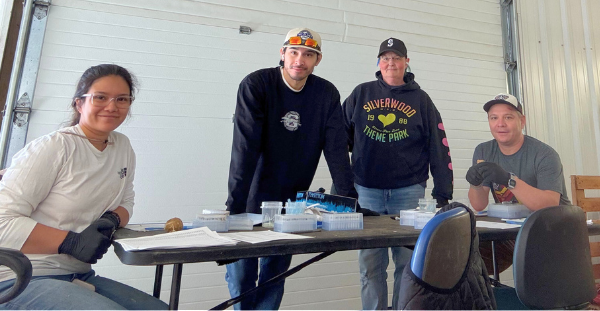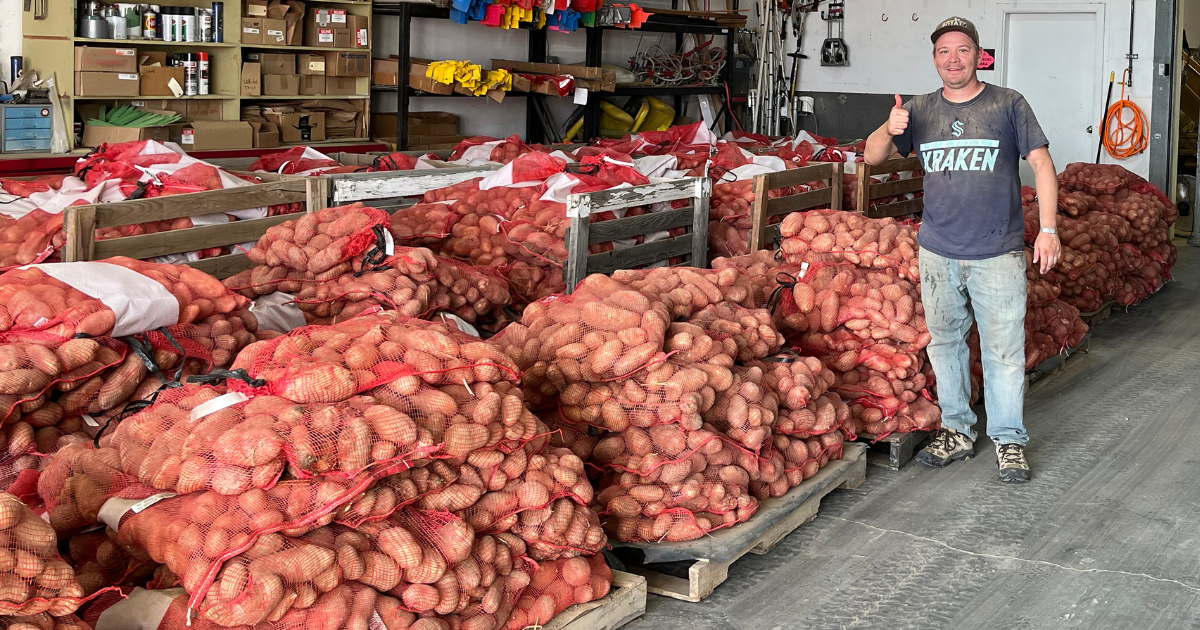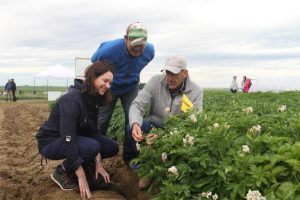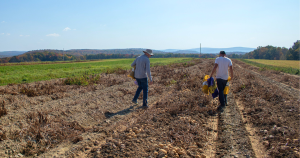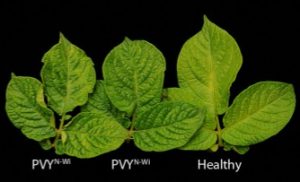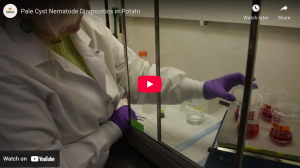Genomic Prediction for Breeding Resistance to Columbia Root-Knot Nematode (CRKN) in Potato
Authors:
Max Feldman, Ph.D.
Vidysagar Sathuvalli, Ph.D.
Focusing on genomic prediction, PAPAS researchers have developed and evaluated a large, factorial half-diallel breeding population to advance the Columbia root-knot nematode (CRKN) resistance trait from SB-22 into a better russet variety.
Breeding population:
- 3 CRKN resistant parent clones
- 11 common russet parents
- 31 total breeding families
- 20-50 clones per family
Roughly 1,200 clones were grown in Othello, WA (2023) and in Hermiston, OR (2024) and evaluated as un-replicated five-hill plots, along with five industry standards at higher replication (~15X).
From these plots, >100,000 tubers (>45,000 pounds of potatoes) were harvested and evaluated across both years using a novel, automated grading platform built in Prosser, WA (2023).
What we measured:
- Yield components (tuber size, number of tubers/sample)
- Specific gravity
- Tuber shape
- Tuber skin color
- Index scores of 11 other tuber features (score represents entire sample)
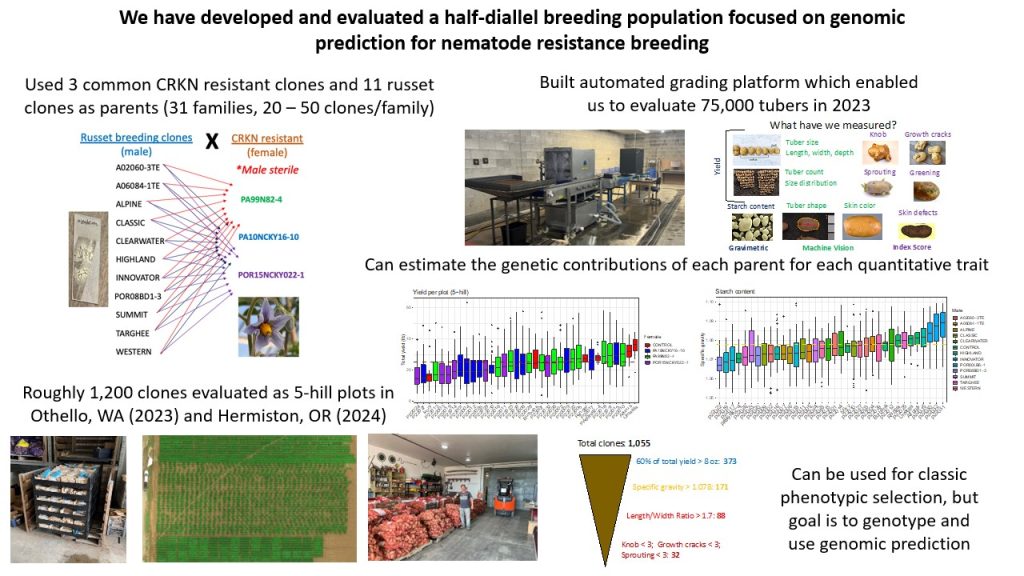
Quantifying genetic contribution of parents for traits
Results from this study indicate that choice of parent has a large influence on the value of the trait in the offspring—and that the choice of male parent is particularly important for solids content (all CRKN clones probably have low specific gravity). We can use this data to make direct selections based upon the phenotypes collected (tuber size distribution, gravity, shape, defect susceptibility).
However, the main benefit will be the use of genetic mapping/genomic prediction to understand the genetic architecture of these traits in order to select offspring to use as parents for future hybridization cycles.
In coordination with the USDA and Cornell Breeding Insight program, this population is being genotyped using DArTag mid-density genotyping platform. This will inform researchers what segments of DNA were inherited from each parent—and help us ascertain the genes or areas of the genome that confer desirable phenotypes like yield, tuber shape, and starch content.
